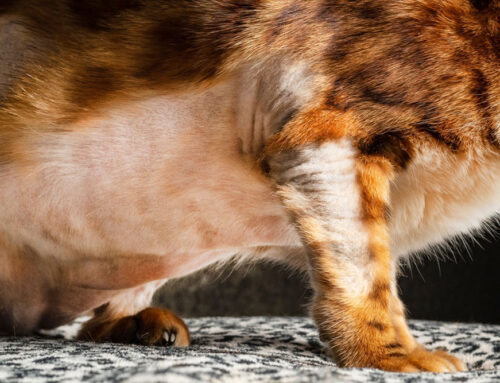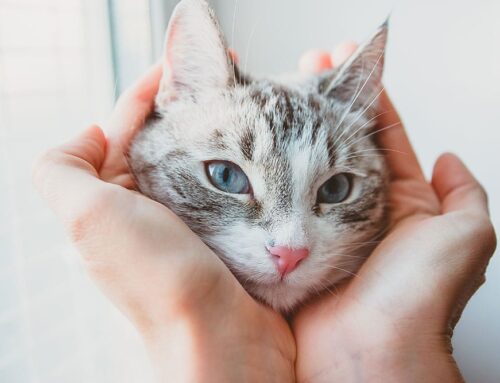As our beloved cats age, it’s natural to notice changes in their energy levels and behaviors. In fact, most cats are considered “senior” by the age of 7 to 10 years, and with age comes a variety of shifts in health, habits, and personality. At Just Cats Clinic in Reston, Virginia, we specialize in the unique needs of older cats, helping ensure they live comfortably and healthily well into their golden years. In this article, we’ll explore why your older cat may be slowing down and what steps you can take to support them.
Understanding the Aging Process in Cats
Just like humans, cats experience changes as they get older that may slow them down. For many cats, this stage arrives around 10 years of age, when they are considered “senior.” Physical and mental changes may include reduced mobility, less energy, and shifts in senses like vision or hearing. Recognizing these changes early can help you adapt your home and routine to better support their needs.
Common Health Conditions Affecting Senior Cats
A range of health conditions can cause older cats to slow down, with some of the most common listed below:
1. Arthritis and Joint Pain
Arthritis is common in older cats, affecting their comfort and ability to move. Cats are experts at hiding pain, so signs can be subtle. Watch for signs such as reduced activity, difficulty jumping, or changes in grooming behavior. Supporting joint health with supplements like glucosamine and anti-inflammatory medications, under your vet’s guidance, can make a world of difference. For more on this topic, visit Arthritis and Joint Disease in Cats.
2. Chronic Kidney Disease (CKD)
Chronic kidney disease affects roughly 30-50% of cats over age 15, leading to symptoms such as increased thirst, weight loss, and lethargy. CKD is a progressive disease, but with early diagnosis and treatment, many cats can maintain a good quality of life. Managing CKD often involves dietary changes, hydration support, and regular check-ups.
3. Hyperthyroidism
Hyperthyroidism, an overproduction of thyroid hormones, can increase metabolism, leading initially to restlessness or hyperactivity. However, as the disease progresses, cats may experience weight loss, muscle weakness, and eventually a notable decrease in activity. Treatments vary from medication to dietary management, each tailored to the cat’s individual needs.
4. Heart Disease
Older cats can develop heart disease, often showing subtle symptoms like decreased stamina, a reduced appetite, or mild coughing. Monitoring and managing heart disease is essential to support your cat’s health and energy levels. If you notice any of these signs, consider visiting our Urgent Cat Care page for immediate guidance.
Recognizing the Signs: When to Seek Veterinary Help
Cats are masters of subtlety, so it’s important to watch closely for signs that may indicate discomfort. Consider a veterinary visit if your senior cat displays any of the following:
- Limping or difficulty jumping onto favorite spots
- Avoiding previously enjoyed activities like playtime
- Grooming less, especially in hard-to-reach areas
- Changes in appetite or water intake
If any of these signs appear suddenly or seem severe, it’s best to consult with your veterinarian. Early detection can improve the effectiveness of treatments and enhance your cat’s comfort. For a full check-up, visit our Preventive Exams and Care page.
How Just Cats Clinic Supports Your Senior Cat’s Health
At Just Cats Clinic, we take pride in our commitment to feline care, particularly for our senior cat patients. Our specialized services include:
- Senior Wellness Exams: Comprehensive check-ups to assess your cat’s health as they age.
- Advanced Diagnostics: From blood work to imaging, we use state-of-the-art tools to detect early signs of illness.
- Therapeutic Pain Management: For arthritic cats, we offer options like laser therapy to ease discomfort. Learn more about our Therapy Laser Services.
Our AAHA accreditation ensures your cat receives the highest standards of care in a calm, cat-friendly environment. Find out more about our AAHA Accreditation and Cat-Friendly Practice distinctions.
Practical Home Tips for Comfort and Health

Caring for a senior cat means adapting their environment to support mobility and comfort. Here are some tips to keep your older cat happy and healthy:
- Comfortable Resting Areas: Provide soft, supportive beds in easily accessible locations.
- Low Litter Boxes: Choose litter boxes with low sides, making them easier for arthritic cats to enter.
- Easy Access to Essentials: Keep food, water, and resting spots in quiet, easy-to-reach places.
- Encourage Gentle Exercise: Short play sessions can help keep joints flexible. Try gentle toys or food puzzles for mental and physical stimulation.
- Monitor Diet and Hydration: Senior cats often need diets rich in easily digestible protein and moisture. For diet advice, read our article on Cat Nutrition Myths.
Caring for an older cat comes with unique challenges, but with a proactive approach, you can make their golden years comfortable and fulfilling. Routine vet visits, a supportive home environment, and an attentive approach to any new symptoms will help you keep your senior cat feeling their best. If you’ve noticed changes in your cat’s energy or behavior, reach out to us at Just Cats Clinic for a thorough check-up.
Schedule an Appointment Today
Whether your cat is showing early signs of slowing down or you simply want to ensure they’re on the best health path, we’re here to help. Schedule a senior wellness exam through the Just Cats Clinic App and let us provide your cherished feline with top-quality care!













